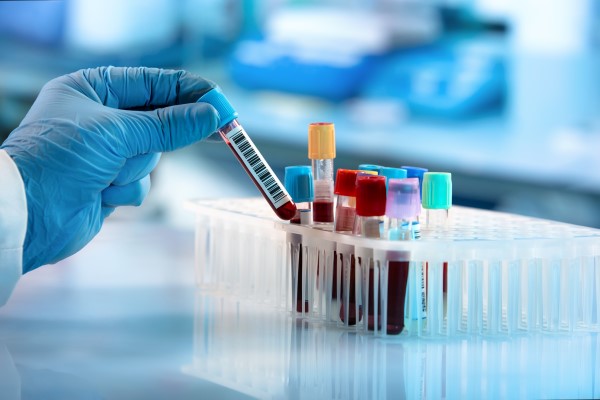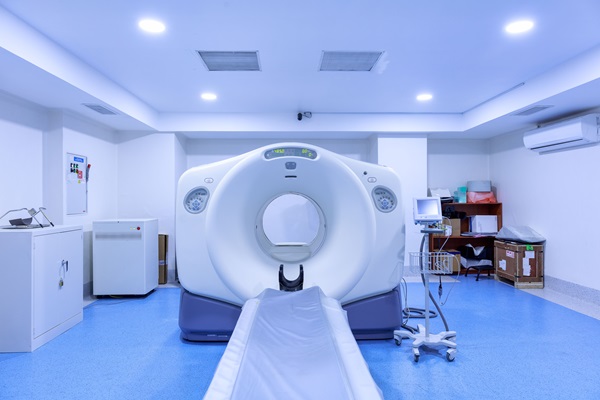When Is It Recommended To Get Blood Testing?

Blood testing is a diagnostic tool that healthcare professionals use to gather important information about your overall health. It analyzes various components of the blood and provides valuable insights into your body's function, hormone balance, nutrient levels, and the possible presence of certain diseases or conditions. The following blog will discuss when a healthcare provider recommends blood testing, highlighting its benefits and the significance of early detection.
When it is recommended to get blood testing
1. Routine check-ups and preventive care
Regular blood testing is part of routine check-ups and preventive care. Primary care providers typically ask patients for blood testing at least once a year as part of their annual physicals to assess their general health. In addition, routine blood testing helps in the early detection and management of conditions like diabetes, hypertension, and anemia. These blood tests usually include the following:
- Complete blood count: This blood screening will test a patient's white and red blood cells and platelets.
- Basic metabolic panel: A basic metabolic panel (BMP) checks a patient's calcium, sodium, potassium, glucose, and other levels.
- Complete metabolic panel: A complete metabolic panel (CMP) will screen everything in the BMP and other proteins and substances related to one's liver function.
- Lipid panel: This test screens the amount of fat in a person's blood, including their good (HDL) and bad (LDL) cholesterol.
2. Unexplained symptoms
Healthcare providers often request blood testing when a patient is experiencing unexplained symptoms. These symptoms may include rapid weight loss or gain, frequent infections, or abnormal bleeding. Blood tests can identify the underlying causes of these symptoms. The causes may include hormonal imbalances, thyroid disorders, autoimmune conditions, or untreated infections.
3. Pre-operation evaluation
A pre-operation evaluation should include blood testing before any surgical procedure to ensure patient safety. Whether a minor procedure or a major operation, a healthcare provider typically performs a comprehensive blood workup. The goal is to assess blood-clotting factors, liver and kidney function, and blood type and to check for any underlying medical conditions that may increase the risks of anesthesia and surgery. In addition, these tests provide important information for the surgical team to optimize patient care and minimize potential complications.
4. Monitoring chronic conditions
Patients with chronic conditions should undergo regular blood testing as part of their ongoing care. A wide range of conditions require constant monitoring of blood glucose levels, hormone levels, inflammatory markers, and lipid levels. These conditions include:
- Diabetes
- Thyroid disorders (e.g., hyperthyroidism and hypothyroidism)
- Autoimmune diseases (e.g., lupus, Grave's disease, and Celiac disease)
- Cardiovascular diseases (e.g., congestive heart failure and cardiomyopathy)
By regularly checking these parameters, healthcare providers can ensure that treatments and medications are effective and make necessary adjustments as necessary. In addition, this proactive approach helps prevent disease progression and optimally manage chronic conditions.
5. Medication management
Blood testing is particularly important for individuals who are on long-term medications. Certain medications, such as anticoagulants, immunosuppressants, and some antibiotics, require monitoring to ensure their levels are within the desired range and identify potential adverse side effects. By conducting blood tests, healthcare providers can evaluate drug efficacy, adjust the dosage as necessary, and monitor for drug-related complications. This monitoring ensures that patients receive optimal treatment and minimizes the risk of adverse drug reactions.
What to expect during a blood test
A blood test is a straightforward procedure that professionals can complete in a laboratory or another healthcare facility, only taking a few minutes. Before the appointment, the patient will check in, provide appropriate identification and paperwork, and ask any questions or voice concerns they may have.
Next, a healthcare professional — such as a nurse or phlebotomist — will guide the patient to a designated area where they will draw their blood. The healthcare professional will clean the treatment site, typically on the inside of the elbow or the back of the patient's hand. They will then apply a tourniquet to make the veins more visible.
The healthcare professional will puncture the visible vein and collect the necessary amount of blood using a sterile needle attached to a collection tube. The patient may feel a brief pinch or prick as the needle is inserted, but the discomfort is usually minimal. After the blood is collected, the healthcare professional will apply pressure to the puncture site to minimize bleeding and place a bandage or adhesive strip over it.
After the blood test, the patient should rest and apply pressure to the blood testing site for a short while to ensure the bleeding has stopped. The healthcare professional will provide any necessary post-procedure instructions and when the patient can resume normal activities.
Still have questions?
Blood testing is an important tool in medical settings. Blood testing is pivotal in maintaining overall health and well-being, from preventive care to managing existing chronic conditions. If you have remaining questions about blood testing or a specific test you need to be done, reach out to our office for more information.
Request an appointment here: https://tx-urgentcare.com or call Texas Urgent Care & Imaging Center at (832) 941-1894 for an appointment in our New Caney office.
Check out what others are saying about our services on Yelp: Read our Yelp reviews.
Recent Posts
X-rays are popular tools medical professionals use to diagnose a wide range of health conditions quickly and safely. They allow these professionals to see inside the body without invasive procedures, making them invaluable in urgent and primary care settings. Whether identifying fractures, monitoring chronic conditions, or detecting abnormalities, X-rays are critical in ensuring timely and…
A CT scan, or computed tomography scan, is a diagnostic tool that provides detailed images of the body’s internal structures. This non-invasive procedure helps medical professionals diagnose and monitor various conditions, from injuries to chronic illnesses. Knowing what to expect during a CT scan can ease concerns and prepare patients for a smooth experience.A CT…
If you work in public transportation, you may need to have a DOT drug screening. The Department of Transportation (DOT) regulates this test and requires it for you. You might be wondering what this test is like. Keep reading to learn more.Congress passed the Omnibus Transportation Employee Testing Act in 1991. Congress knew that the…
Walk-in clinic provide convenient, accessible health care for non-emergency medical needs, making it an ideal choice when immediate attention is necessary. Understanding when to visit a clinic can help patients save time, avoid unnecessary trips to the emergency room, and receive quality care for their health concerns. These clinics handle various issues, offering fast, professional…


